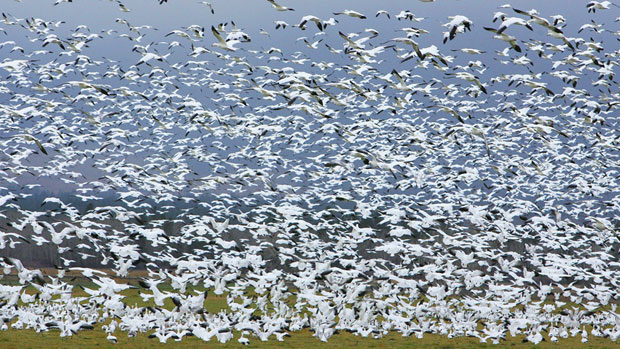Number of geese in Arctic rises
 Increase comes as other Arctic bird populations decrease
Increase comes as other Arctic bird populations decrease
The number of geese in the Arctic is on the rise, according to the North American Bird Conservation Initiative, but the birds are taking a toll on the land.
At the same time, typical Arctic shorebird populations are experiencing a steep decline.
The North American Bird Conservation Initiative in Canada is made up of federal, provincial and territorial governments as well as conservation groups.
It says the Arctic has always been a haven for shorebirds – species like the red knot and whimbrel travel north for thousands of kilometres from South America each year to breed. But the group is now concerned about these Arctic shorebird populations.
Overall, the Conservation Initiative says the populations are down by 60 per cent.
Ted Chesky, who is with Nature Canada, said habitat destruction to feeding grounds in the Caribbean and in Central and South America is a major problem.
“They need that fuel for further migrations and also to be able to arrive healthy on their breeding grounds.”
At the same time, geese populations are up. But that isn’t necessarily a positive sign.
“There is still evidence that in some areas of the Arctic they have caused significant damage to the habitat,” said Charles Francis with the Canadian Wildlife Service.
In some cases, the geese are eating up large amounts of food and destroying the tundra and Arctic wetlands.
Francis said scientists face the ongoing challenge of how to manage birds in the Arctic due to the remoteness of the area and a lack of data.
For more stories from CBC News, click here



